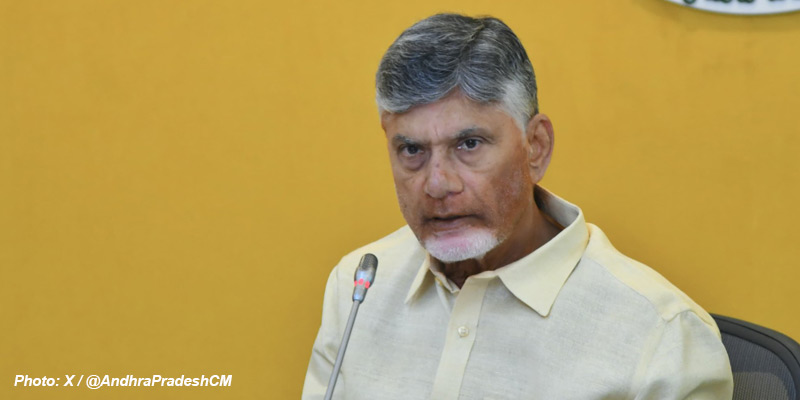- India
- Apr 24
Andhra Pradesh to set up India’s first quantum computing village
• The Andhra Pradesh government held discussions with key stakeholders to set up India’s first quantum computing village.
• A 50-acre facility will be designed to host a collaborative ecosystem for quantum research, featuring International Business Machines Corporation’s (IBM) advanced quantum systems and infrastructure by Larsen & Toubro (L&T).
• Stakeholders discussed ecosystem development, infrastructure planning, and long-term scalability. L&T will construct an iconic building, with technical specifications from IBM and TCS for the project.
• A dedicated on-site data centre will support high-performance computing, enabling institutions and industries to leverage shared quantum resources and boost innovation across multiple domains.
What is quantum technology?
• Quantum technology is based on the principles of quantum mechanics developed in the early 20th century to describe nature at the scale of atoms and elementary particles. Using quantum superposition, a set of unbreakable codes or super-speedy information processing, quantum computers are able to mimic several classical computers working in parallel.
• Quantum technology is manifested through applications in secure communication, disaster management through better prediction, computing, simulation, chemistry, health care, cryptography, imaging among others.
• Scientists have expanded quantum theory to understand biological phenomena such as smell, consciousness, enzyme catalysis, photosynthesis, avian navigation like that of the Robin, origin of life and effects on coronavirus.
• Some stalwarts in this field include Satyendra Nath Bose, Sir Chandrasekhara Venkata Raman and Meghnad Saha. India is currently at the forefront of tapping the second quantum revolution through massive investments in the field.
• The range of quantum technologies is expected to be one of the major technology disruptions that will change the entire paradigm of computation, communication and encryption.
• It is perceived that the countries who achieve an edge in this emerging field will have a greater advantage in garnering multifold economic growth and dominant leadership role.
• Quantum computing is an emerging field that harnesses the laws of quantum mechanics to build powerful tools to process information. It has the potential to solve computational problems that are beyond the reach of classical computers, and lead to new breakthroughs that can transform chemical engineering, material science, drug discovery, financial portfolio optimisation, machine learning and much more.
• Quantum computers consist of quantum bits, or “qubits”.
• For India, quantum technology holds strategic importance in enhancing technology security & competitiveness and India’s position in the global technology landscape.
National Quantum Mission
• It aims to seed, nurture and scale up scientific and industrial R&D and create a vibrant & innovative ecosystem in quantum technology.
• This will accelerate quantum technology-led economic growth, nurture the ecosystem in the country and make India one of the leading nations in the development of Quantum Technologies & Applications (QTA).
Objectives of the mission:
• The mission would greatly benefit communication, health, financial and energy sectors as well as drug design, and space applications.
• The new mission targets developing intermediate scale quantum computers with 50-1,000 physical qubits in eight years in various platforms like superconducting and photonic technology.
• Satellite-based secure quantum communications between ground stations over a range of 2,000 km within India, long distance secure quantum communications with other countries, inter-city quantum key distribution over 2,000 km as well as multi-node quantum network with quantum memories are also some of the deliverables of the mission.
• The mission will help develop magnetometers with high sensitivity in atomic systems and atomic clocks for precision timing, communications and navigation.
• It will also support design and synthesis of quantum materials such as superconductors, novel semiconductor structures and topological materials for fabrication of quantum devices.
• The Department of Science and Technology (DST) has established four thematic hubs, in key technology verticals bringing together 14 Technical Groups across 17 states and two Union Territories.
They are:
i) Quantum Computing at Indian Institute of Science, Bengaluru.
ii) Quantum Communication at Indian Institute of Technology, Madras in association with Centre for Development of Telematics, New Delhi.
iii) Quantum Sensing & Metrology at Indian Institute of Technology, Bombay.
iv) Quantum Materials & Devices at Indian Institute of Technology, Delhi.
Manorama Yearbook app is now available on Google Play Store and iOS App Store

